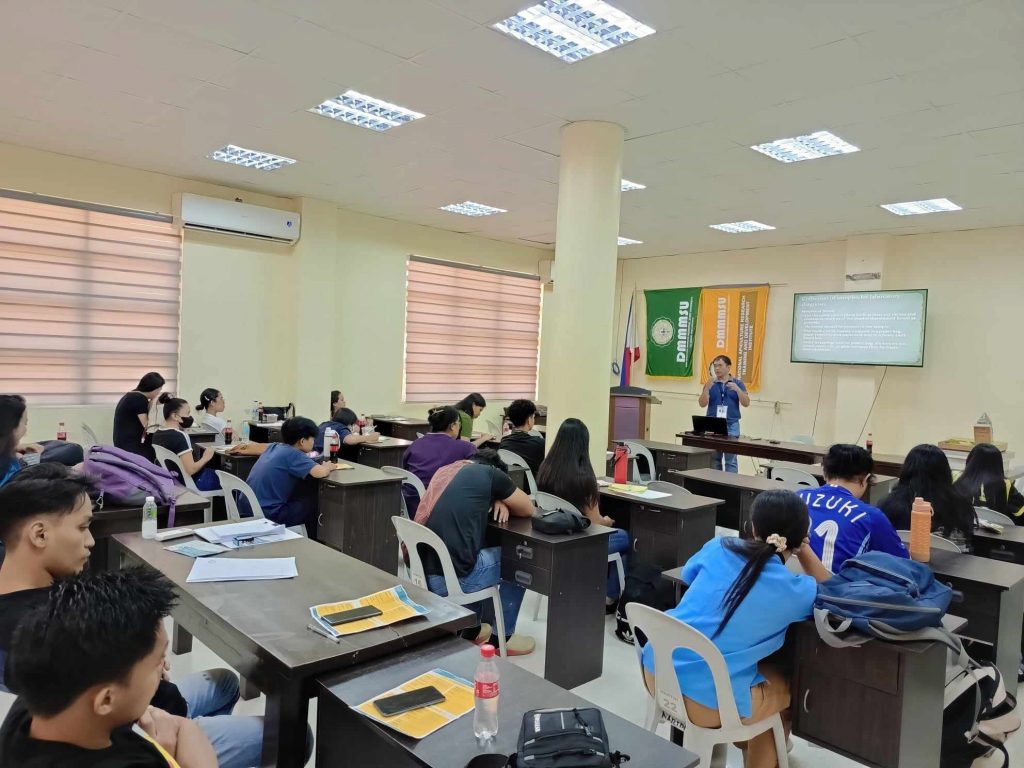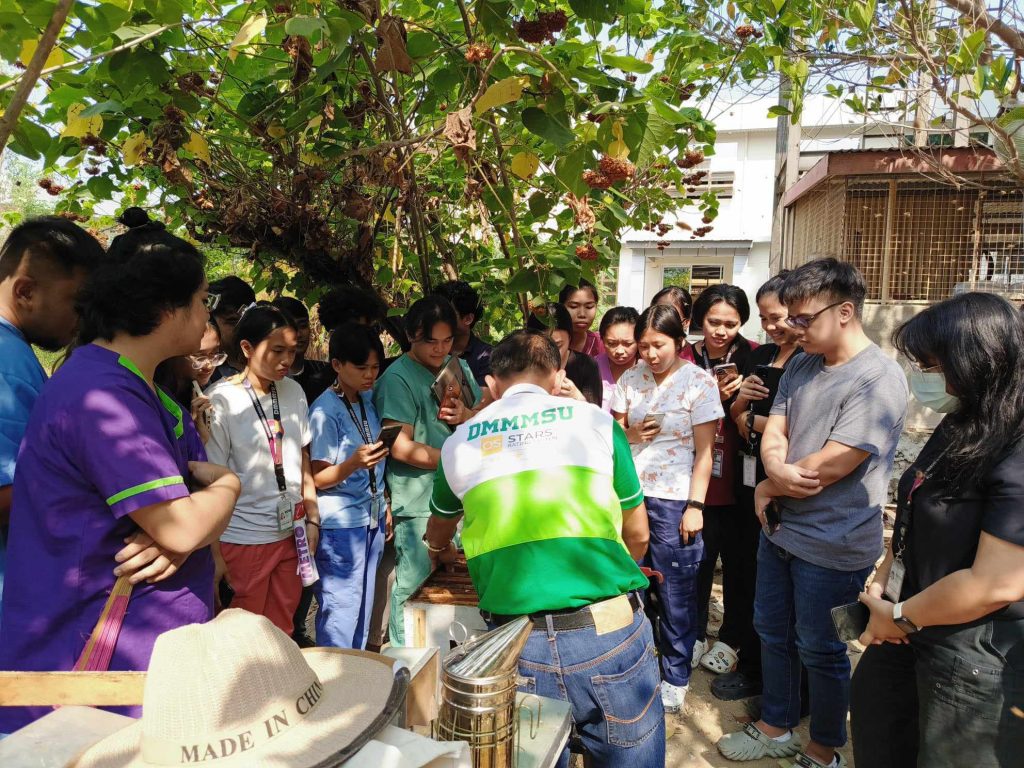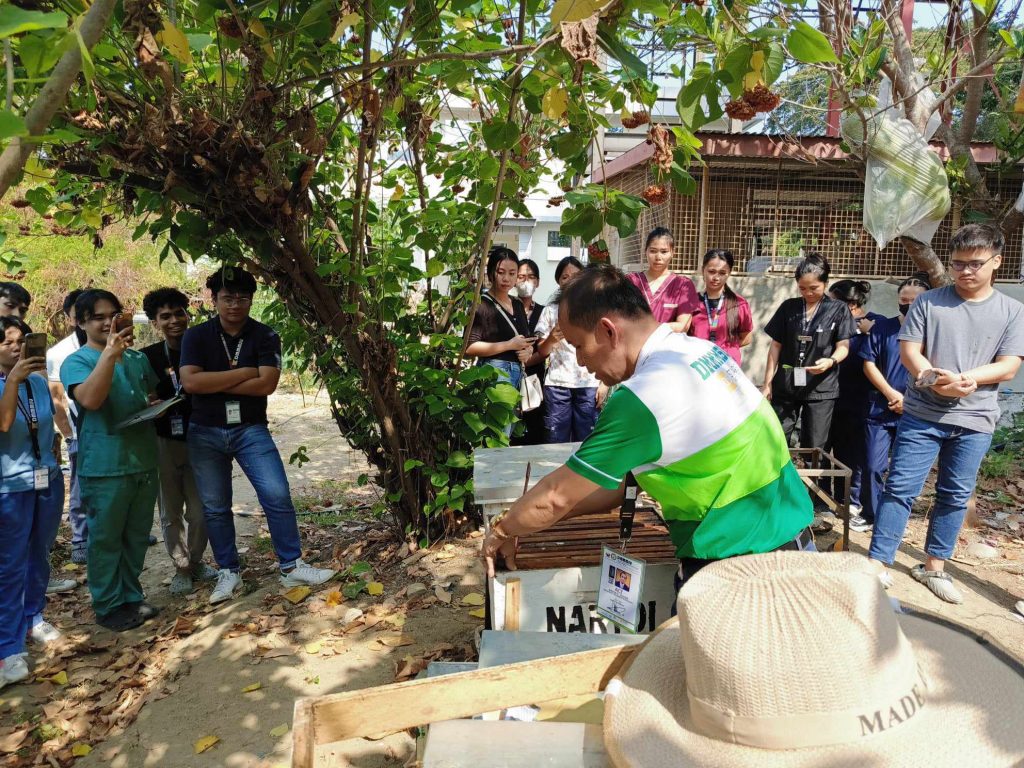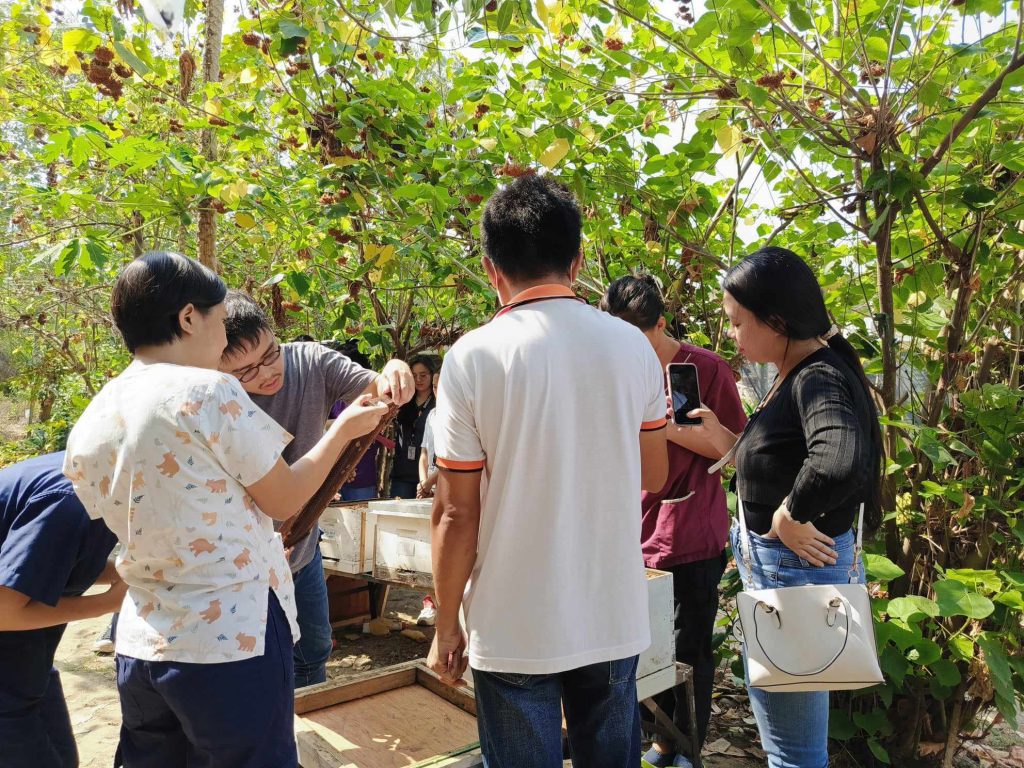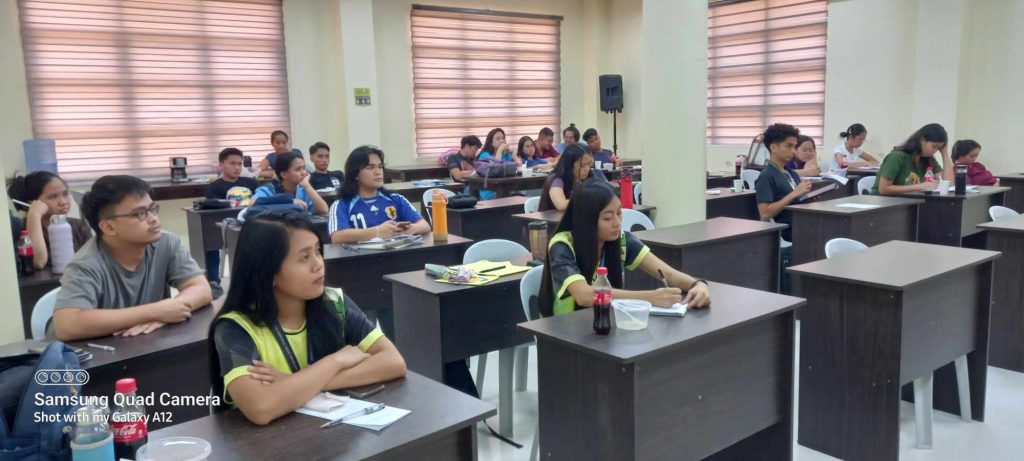To foster interdisciplinary skills and promote sustainable beekeeping practices among university students, the National Apiculture Research Training and Development Institute (NARTDI) trained 23 students from the College of Veterinary Medicine (CVM), and two students from the Institute of Agri-Business Management (IABM). The event titled Bridging the Gap: Beekeeping Training for Future Veterinarians was held at the NARTDI Conference Hall, Sapilang, Bacnotan, La Union, on April 11-12, 2024.
Dr. Joseph A. Panas, Executive Director of NARTDI, in his introductory remarks, highlighted the increasing opportunity for students in the field of beekeeping and emphasized the significance of Department of Agriculture Administrative Order No. 14, series of 2012, which directs the Bureau of Animal Industry (BAI) to promote the development of the apiculture in collaboration with NARTDI and other beekeepers and stakeholders. He also mentioned that the official control of bee diseases and other measures is under the Veterinary Authority.
In his brief message, Dr. Gregory B. Viste, CVM Professor, also pointed out the significance of incorporating beekeeping skills into the education of the students.
“Bees play a crucial role in pollination, which is vital for maintaining biodiversity and supporting agricultural productivity. By familiarizing our students with beekeeping practices, we are preparing them to address emerging challenges in agriculture and environmental conservation,” Dr. Viste said.
The two-day training activity featured a comprehensive curriculum designed to introduce the participants to the fundamentals of beekeeping.
Beekeeping involves aspects of both animal husbandry and business management. By engaging in this beekeeping training, the veterinary students gained a deeper understanding of beekeeping, which will complement their veterinary education and prepare them to deal with issues related to bee health and management in their future careers. Similarly, the agribusiness students learned about sustainable practices and the economics of beekeeping. (By Arvin C. Tuyan)
